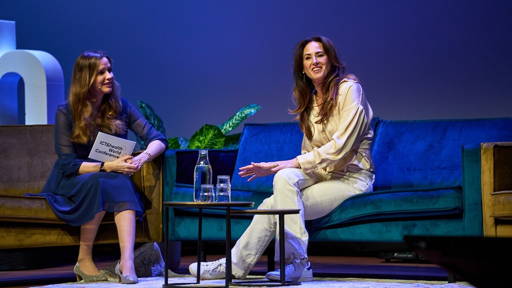Cancer-related fatigue is one of the most common and profound side effects of treatments such as chemotherapy and radiation. Traditional methods, such as medication and exercise, have not proven effective for everyone. Researchers at the Rogel Cancer Center, in collaboration with University of Michigan start-up Arcascope, have developed an innovative solution: an AI-driven app that makes personalized recommendations to reduce fatigue based on circadian rhythm - a biological rhythm with a cycle of about one day.
The app, Arcasync, monitors sleep-wake patterns via heart rate and activity data and advises users, for example, to seek bright light at specific times. A clinical study with 138 patients with breast, prostate and blood cancers found that participants who used the app experienced significant reductions in daily and weekly fatigue. The study suggests that digital health technologies such as Arcasync can be a valuable complement to existing treatment methods.
Disruption of circadian rhythm
The human body has an internal clock that regulates the sleep-wake cycle. This follows a 24-hour pattern and affects various processes, such as digestion and body temperature. Disruptions in this system have been shown to worsen fatigue and quality of life in cancer patients. Fortunately, external factors such as light can help alter circadian rhythms.
“While treatments that provide relief can be helpful, previous studies had a one-size-fits-all approach where patients were exposed to light at a specific time of day, without regard to their individual circadian rhythms,” said Caleb Mayer, graduate student in mathematics and first author of the study.
Personalized advice through an app
To improve these treatments, the team developed the Arcasync app. That tracks users' sleep-wake patterns based on their heart rate and physical activity patterns. Then, using mathematical models, the app could make recommendations such as “Look for bright light,” at certain times of the day. The 138 participants in the study, published in Cell Reports Medicine, were divided into a control group and an intervention group. The participants included patients with breast, prostate cancer and leukemia. For 12 weeks, all participants were asked to report their levels of fatigue, sleep disturbance, anxiety, depression and general health.
Participants who were in the intervention group reported reduced daily and weekly fatigue. This demonstrated that personalized recommendations can improve quality of life. “We showed that you can use a device that is seamlessly integrated into your life, the smartphone, to manage your circadian rhythm. And we think the reach of this app can be much greater than traditional medications or exercise programs, regardless of the type of cancer,” says Sung Won Choi, professor of pediatric hematology-oncology and a member of the Institute for Healthcare Policy and Innovation.
The next step is to scale up the study and explore broader applications, such as optimizing medication timing and infusion treatments. This innovation highlights the potential of AI and personalized digital care in oncology.
E-health interventions
There has been previous research on digital interventions for chronic fatigue symptoms after cancer. University of Twente PhD student Lian Beenhakker, for example, examined 35 e-health interventions to reduce these symptoms three years ago.
That research led to the compilation of an overview of existing e-health interventions for treating (chronic) fatigue. In compiling that list, a number of distinguishing issues important to patients were taken into account. Consider, for example, the duration and intensity of the intervention, but also the cost and whether or not an intervention provides personal contact with a physician and/or peers.







